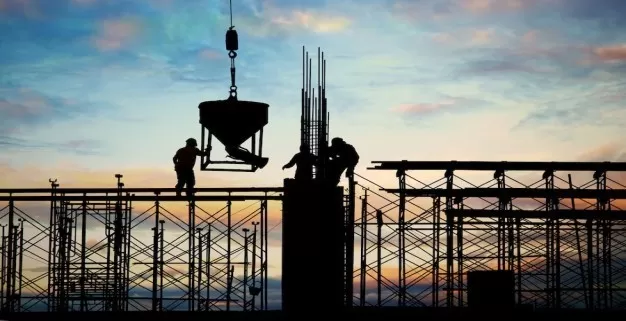
Main contractor insolvency means that he has become unable to pay his outstanding financial obligations, including the fees of the subcontractor. This could be due to the main contractor’s failure to obtain his fees from the employer with the unavailability of financial solvency. The legislator intervened in that case to protect the subcontractor, who had obligatory rights, as he did not fail to perform his work, rather, he performed his work to the fullest. This drives us to clarify some issues related to the situation of the subcontractor in relation to the contractual relationship between the main contractor and the employer. Again, the legislator intervened to provide the necessary protection for that weaker and more affected party in the event of default by the main contractor.
1. Definition of Subcontract:
Subcontracting, as defined in the Egyptian Civil Law (“Law”), is an applied form of a construction contract between the main contractor and another contractor, a subcontractor. However, this contract has the same features, and its existence entails a relationship between the employer and the subcontractor in turn. Also, subcontracting is one of the most prominent modern contracting activities today, not an exception to the principle of relativity of the effect of the contract. But, rather, it is an independent contract with independent provisions, and, therefore, it is not deemed a deviation from the principle that the parties to the contract are the only parties concerned with its implementation and they shall implement the contract themselves. It is established that if the main contractor is obligated to carry out the works agreed upon with the employer, this does not necessarily imply that he shall perform such works himself or that contracting with him is subject to personal considerations, and may not assign such works to subcontractors as long as it is not expressly prohibited in the main contract or made it subject to certain conditions. Nevertheless, sometimes, the main contractor may become unable to pay the dues of the subcontractor. and here the problem arises, as the latter does not find any way through which to obtain his dues if it was not possible to resort to the employer to claim his legal dues. Here a question arises about the extent to which the subcontractor may resort to the employer to claim his legal dues in this case, even though he is not a party to the main contract. We will answer this question in the following lines:
2. Legally Established Rights of Subcontractor:
- The subcontractor is considered the real provider of the service and, therefore, is the directly affected party if the main contractor fails to perform his payment obligations. In this regard, the Egyptian legislator considered that the indirect action is not sufficient to protect the rights of the subcontractor, because even if a judgment is issued in favor of the latter, the right, however, remains due by the debtor, i.e. the main contractor, and it is incorporated in the general guarantee of the debtor’s creditors. To establish protection for the subcontractor, the Law set a set of important rules, which are represented in Article 662 of the Law, stipulating as follows:
“(1) Subcontractors and workmen working for a contractor in the execution of a contract have a direct right of action against the employer but only to the extent of such sums as are due by the employer to the main contractor on the date that action is commenced. Workmen of subcontractors likewise have the same right of action against the main contractor and the master; (2) In case of an attachment served by one of them upon the employer or the main contractor, workmen have the right of privilege on the sums due to the main contractor or to the subcontractor at the time of the attachment, in proportion to the amount due to each of them. These sums may be paid to them directly; and (3) The rights of subcontractors and workmen provided for in this Article have priority over those of a person to whom the contractor has assigned sums due to him by the employer.
The aforementioned Article provides for approval of the following rules in this regard:
- Granting the right to the subcontractor and the workmen to file a direct action against the employer being the debtor of the debtor in this case;
- Restricting the right of the main contractor regarding the disposal of his rights with the employer;
- Granting the subcontractor right of privilege in the event of attachment of the dues of the main contractor to the employer.
Thus, the aforementioned rules granted to the subcontractor, as well as to the workmen of the main contractor, the right to file a direct action against the employer and claim for their due payments in the event of default by the main contractor, provided, however, such claim shall not exceed the amount of the debt owed by the employer in favor of the latter.
Within this context, jurists agreed that this rule is one of the rules of public order, which cannot be agreed to be violated even if it was previously waived in the contract. It is worth noting that these actions are deemed special cases, and relate to specific funds in the debtor’s custody and do not include all of his funds.
That is, it is related to the right to the fees that became due under the contract only to the extent that the employer (at the time of filing the action) still owes the main contractor. The claimant may not claim rights exceeding his rights or exceeding the rights of the main contractor with the employer.
In addition, these legal actions are not obligatory, as the creditor has the option to use them or not, and it is not required that all the creditors agree on them. That is, if one of the creditors files this action and it becomes due, the debtor has the right to pay the due payments directly to the concerned party, without the need for a meeting of all the rights holders unless one of them has made a notice or a similar act to preserve his right.
Fees/Consideration in Subcontract
Fees represent the consideration that the main contractor is obligated to pay to the subcontractor for the execution of the works, and it is made against the obligation of the subcontractor. It shall be specific or capable of being assigned, otherwise, the contract shall be then deemed a donation contract. Also, the fee owed by the contractor to the subcontractor, as the principle is that the fee shall not be payable until after the completion and handover of the works or service. However, the subcontract may provide for some clauses that specify how fees will be paid in different ways.
Restricting Right of Main Contractor Regarding Disposal of His Rights With the Employer;
It should be noted that the direct action set by the legislator is ineffective as soon as there is a right to file it. This means that as long as the action has not been filed, the main contractor remains free to assign all his rights without being bound by anything. Also, the sum of payments in the action shall not exceed the amount that he owes to the main contractor at the time of filing the action. Therefore, the main contractor may assign his right before filing the action, and the employer may not owe any payments at that time. Then, only when the action is filed, freedom shall have become restricted and the right shall be frozen in the hands of the employer until the decision is made on or the full payment thereof.
We should note here that giving a warning to the employer of fulfillment holds the same legal effect as filing a direct action in the event of the latter being rejected to pay at that time to the main contractor. Rather, he must pay his creditors of subcontractors and workmen. If he pays the main contractor after the date of the warning or filing the action, such payment may not apply to the right of a subcontractor, while the latter may claim his right from the employer. Then, the latter shall return any payments paid to the main contractor.
Right of Privilege of Subcontractor and Workmen in Case of Attachment:
It is established that a subcontractor or workman may not seek direct action, rather, he may choose a normal means open to any creditor under the general rules of law, which is the way of attachment of the debtor dues with third parties. Since the attachment is one of the general rules, the creditor, in this case, does not acquire, being the initiator, a privileged position or prevent other creditors from following the same approach. Therefore, the attachment is considered weaker than the direct action upon which other procedures are stayed and prevents the attachment or the continuation thereof, even if it was conducted before filing the action. But the legislator granted attachment special advantages, according to Article 662 of the Law. This is, making the same persons who have the right to file a legal action and the beneficiaries of direct action have a privilege at the time of imposing the attachment. The amounts shall be divided among them in proportion to each party who has the privilege and may be paid to them directly.
It should be noted here that the reason for granting the right of privilege to the subcontractor and the workmen, is that the direct action may not be sufficient to protect them completely, as it does not prevent the creditors of the employer from having priority over them. Hence, the Egyptian legislator decided to grant them this privilege, because the direct action prevents having a priority over the main contractor's creditors and not the employer's creditors.
Please note that, in filing a legal action by a subcontractor against an employer, it is not required that the main contractor be insolvent, or that he had resorted to the latter first, as we explained above.

 English
English
 العربية
العربية
 中文语言
中文语言
 русский язык
русский язык
 Le français
Le français
 Española
Española



